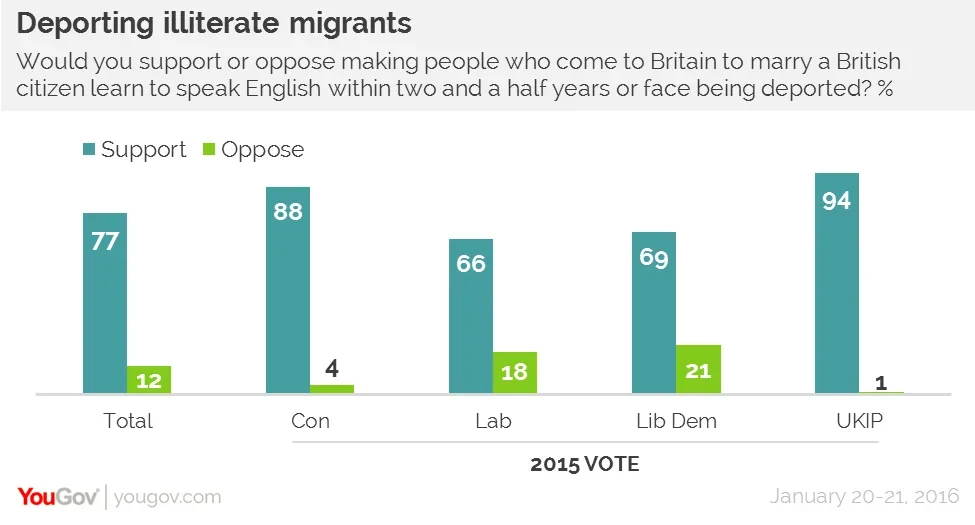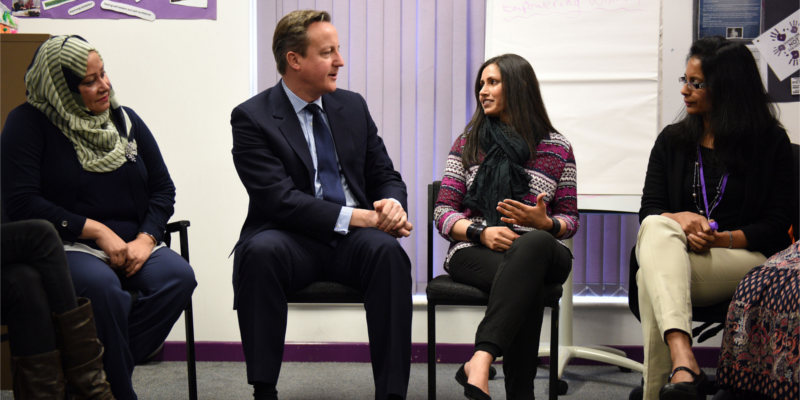77% of British people support deporting migrants on spousal visas if they fail to learn English in two and a half years – but many doubt this would decrease radicalisation
David Cameron announced new rules on Monday that will require people coming to the UK on five-year spousal visas to show improvements in their English after two and a half years or face deportation. The government said 22% of Muslim women living in England speak little or no English, and while the Prime Minister said there was no “causal connection” between poor English and radicalisation he did suggest it could inhibit integration, which may lead to “challenges understanding what your identity is” and vulnerability to the “extremist message that comes from Daesh [ISIS]”.
The policy begun to unravel throughout the day after it emerged local council services helping migrant women to learn English had been cut, or were only available to those with access to public funds – ie not those on five years’ visa probation.
New YouGov research reveals overwhelming support for the policy. Fully 77% support making people who come to Britain to marry a British citizen learn English within two and a half years or face deportation.

Only 12% oppose, and the most this rises to is 21% for those who voted Lib Dem in 2015, 20% of 18-24 year olds and 19% of Londoners – but at least 60% of every demographic group support the policy.
David Cameron has been criticised for conflating issues. There are dangers for Muslims of segregation and isolation, but some argue this is more a consequence of inequality than culture. 46% of Muslims live in the most deprived 10% of the country, which may suggest tackling deprivation would have a greater effect on de-radicalisation than language lessons.
46% of the British public say policies such as requiring Muslim women to learn English are likely to have no effect on radicalisation, however among those who think the measures would have an effect there is a tendency to say they would decrease (25%) rather than increase (14%) radicalisation.
Hostility to Muslims has increased in recent years, and linking Muslim women with extremism could increase marginalisation. Separating mothers who fail to improve their English from their children and sending them home could also increase opposition to the West. However, supporters of the policy argue education could ease problems with patriarchy in Muslim communities, opening the door to jobs and economic freedom.










